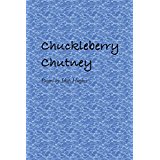Skip Hughes is a poet. Yes, he’s done many other things, including teaching in college. But at the core, he is a poet. And today, he would like to encourage you to consider poetry for the pleasure it can give you.
teaching in college. But at the core, he is a poet. And today, he would like to encourage you to consider poetry for the pleasure it can give you.
Of Poetry
Please forgive me, gentle reader, for I’ve yet to catch up with a most modern phenomenon, so this guest blog is an experiment -my very first blog post.
Do you like poetry? I hope you do, but if you don’t please permit me to persuade you toward enjoying poetry.
I. Poetry as spoken is the use of spoken language in story-telling or song, by conjecture among the most ancient uses of all spoken language, a phenomenon whose origin is lost in the distant mists of time.
II. Poetry as written is the earliest known form of western literature, recorded from c.800 B.C. (See Homer.) It was the only known form of western literature through c.460 B.C. (See Herodotus, Plato, et al.) As composed of alphabetic letters used to form words, it is the earliest known form of any literature. (See Oriental Languages.)
III. Poetry as performed. According to Aristotle (See the Poetics.) and as well by conjecture, audiences of sung poetry (See Greek Theatre.) experienced a sort of catharsis, an influence toward the civilizing of their thoughts and behavior. Accordingly, as performed either without or with music, i.e., as song, poetry ought to be powerfully evocative, easily commanding an audience’s attention.
IV. Poetry as Read.
- Read a poem with care. Be prepared to laugh or cry, or both at once. Read a poem for the joy of it, sometimes for the sadness. Read a poem many times, and even memorize it. Keep on reading a poem only if does bring you joy or worthwhile sorrow, e.g., as treasured memory.
- Read a poem for more than one meaning, and on more than one level, etc. emotional and intellectual. Also a poem may have one obvious interpretation, and another not so obvious that sneaks up on the reader.
- Read a poem aloud, to somebody else or just to yourself. Listen to the sounds you’re hearing as you understand the words. That sound is an essential aspect of poetry.
- Read poetry in small bites. Allow thinking time between poems. Never permit yourself to become less attentive by trying to read too much poetry at one occasion.
V. A poem to read.
Campfire Musings
by Skip Hughes
As yonder in the western sky, the last
Of bustling daylight dims, as father night
Shrugs on his fine black mantle, campfire light
Bewitches me, its artful spells to cast.
Where then companions, friends of years long past,
But in those ghostly shadows, tricking sight
Beyond the campfire round? They seem so slight,
Those wraithlike phantoms, forms of darkness vast.
The fire now flickers low, its embers faint,
Pale, ash-bound. Ghosts have fled, gone who knows where,
And sleep with spectral finger beckons me.
But day will come I trust, and reacquaint
Me once again with life, with light and air,
Another chance to live reality.
©2017 Floyd E. “Skip” Hughes
I quite attempt to write my poems to these standards, and some of them have indeed been published in a variety of anthologies and periodicals. I wrote “Campfire Musings” for my next book, since the content of my recently published one has been set for several years. My existing book, entitled 
is available on Amazon. Click here to take a look.
And leave us a comment on how you relate to poetry – like it, don’t like it, never read it, whatever. Thanks.

I do enjoy reading and listening to poetry. I am not able to write it, however, and have great respect for those who can.
Maryann, what makes your statement true is that you believe it. I wrote my first poem at age twelve, and very fortunately that one no longer exists. I’ve written quite a number in my adultery (That’s a pun as you probably noticed.). Many of those also will never be seen.
Oh I do love word play! Maybe there’s none in “Campfire Musings,” but I use it quite a lot.
I do pick and choose among my poems, perhaps less so as I’ve written with more confidence. And that’s my point: it takes doing it, practicing, to get it right, as with anything else. Thank you for replying!
Skip, so good to hear from you. I will never forget taking your poetry workshop at the Pizza Inn in Pittsburg. Even though I knew very little about poetry, you were gracious as you read our work aloud. You smiled some when you read mine and I knew you were being tactful. Thank you for sharing with us on those Saturday mornings. Today, I’ve progressed a little with my poetry, even published a couple of poems. You had a part in that. Your love of poetry was very evident during those sessions and it seeped into our hearts too.
Dear Vickie, thank you so much for responding. As you well may imagine, it’s wonderful to know that I encouraged you to creative work.
OBTW, that smile had to have been because I liked your poem.
I think of poetry as a basic way to respond to the world. What are songs but poems? What is the most immediate way to respond to anything in our world? Through a few phrases. I was reminded of the beauty of poetry the other day when I went to see “Paterson.” A friend leaned over halfway through and asked, “Is anything going to happen?” But to me…. while not much “happens,” the film is about celebrating the little beauties of daily life–which Paterson does through poetry. I left the film inspired to write more poems more often. So, Skip, thanks for the reminder to try our hand at this wonderful art form!
It’s there! You’re so right, it’s the song. It’s not so much what happens but how a poem reacts to it. Thanks in my turn for reminding me of that.
I love to read poetry and love to write it also. I’m usually inspired by nature or by strong feelings associated with times of challenge, grief or happiness. I haven’t written a poem for a long time because the demands of writing, promoting and publishing my mysteries seem to get in the way. Maybe it’s time to get back to it while there’s a hiatus in my prose writing obligations. Thanks so much for your suggestions on how to approach poetry.
Poetry is prose in microcosm, same principle (words in a row), different form (fewer words). It’s worthwhile exercise in economy of words, even if that’s a prose-writing strength for you. In prose, I tend to overdo it, use more words, meander some. Writing poetry is maybe frustrating in that sense, but quite worthwhile. See what I mean? Windy, but not in Chicago. Thank you for replying!
So good to read these words from our friend Skip.
Dear Gay, so nice to hear from you! Should you happen to get my book, please talk about it. I need to know what you’ve been doing too. I can’t leave my address here, but you can get it from Galand. She even has the book itself. Thanks for replying!